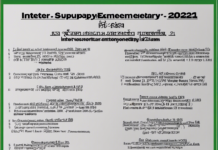Introduction
India celebrates its independence day on the 15th of August every year. This day holds immense historical significance as it marks the end of nearly two centuries of British colonial rule in the country. The day is commemorated with great enthusiasm, pride, and patriotism throughout the nation. Let us delve deeper into the history, significance, and celebrations of India’s independence day, also known as Swatantra Dinotsav.
The Struggle for Independence
The fight for India’s independence was a long and arduous one, marked by various revolts, uprisings, and movements against British colonial rule. Leaders like Mahatma Gandhi, Jawaharlal Nehru, Sardar Vallabhbhai Patel, and Subhas Chandra Bose played pivotal roles in mobilizing the masses and spearheading the independence movement. The non-violent protests, civil disobedience campaigns, and acts of resistance eventually led to India gaining its freedom on 15th August 1947.
Significance of Independence Day
Independence day holds immense significance for the people of India as it symbolizes the hard-fought freedom from colonial rule and the dawn of a new era of self-governance and nation-building. It is a day to honor the sacrifices of the freedom fighters who laid down their lives for the country and to pay tribute to those who continue to defend the nation’s sovereignty and integrity.
Celebrations and Festivities
Independence day celebrations in India are marked by flag hoisting ceremonies, cultural programs, parades, and patriotic fervor across the country. The Prime Minister of India hoists the national flag at the Red Fort in Delhi and delivers a speech highlighting the achievements of the nation and outlining the government’s priorities. People across the country hoist the tricolor, sing the national anthem, and participate in various events to showcase their love for the country.
The Importance of Patriotism
Independence day is a time to instill a sense of patriotism and national pride in the citizens of India. It serves as a reminder of the sacrifices made by the freedom fighters and the importance of upholding the values of freedom, democracy, and secularism. Patriotism is not just about loving one’s country but also about contributing towards its progress, development, and unity.
Challenges and Opportunities
While India has made significant progress since gaining independence, the country still faces numerous challenges such as poverty, corruption, inequality, and communalism. Independence day serves as a moment of reflection to acknowledge these challenges and renew our commitment towards building a more inclusive, prosperous, and harmonious nation. It is also a time to celebrate the rich cultural diversity and heritage of India.
Conclusion
In conclusion, India’s independence day is a time to celebrate the nation’s freedom, honor its history, and rekindle the spirit of patriotism. It is a day to cherish the principles of unity in diversity, secularism, and democracy that form the bedrock of the Indian nation. As we commemorate Swatantra Dinotsav, let us remember the sacrifices of the past, celebrate the achievements of the present, and strive towards a brighter future for generations to come.
FAQs
Q1: Why is India’s independence day celebrated on 15th August?
A1: India’s independence day is celebrated on 15th August to commemorate the day when the country gained freedom from British colonial rule in 1947.
Q2: How do people celebrate independence day in India?
A2: People in India celebrate independence day by hoisting the national flag, singing the national anthem, participating in cultural programs, and engaging in patriotic activities.
Q3: What is the significance of the Prime Minister’s speech on independence day?
A3: The Prime Minister’s speech on independence day highlights the achievements of the nation, outlines the government’s priorities, and inspires the citizens to contribute towards nation-building.
Q4: Why is patriotism important on independence day?
A4: Patriotism on independence day helps in fostering national unity, preserving the country’s heritage, and inspiring people to work towards the betterment of the nation.
Q5: How can individuals contribute towards the progress of India on independence day?
A5: Individuals can contribute towards the progress of India by participating in community service activities, promoting social harmony, upholding democratic values, and striving for a more equitable society.







